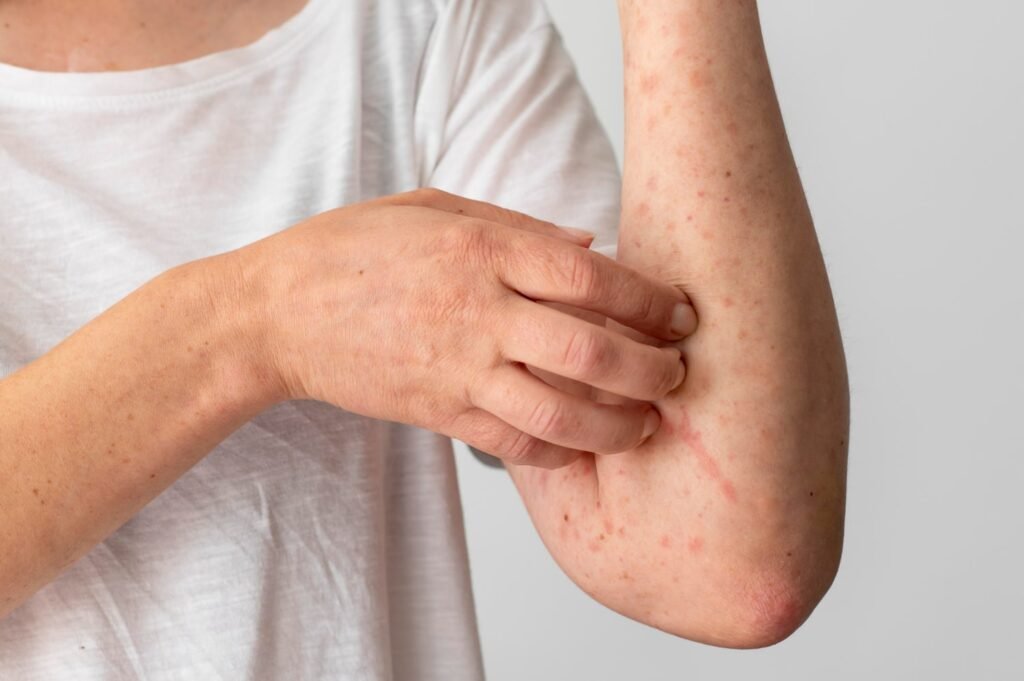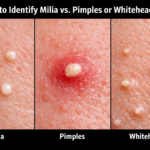Introduction: Understanding Skin Reactions
When it comes to our skin, understanding what’s going on beneath the surface can be a bit of a puzzle. Two common culprits that often cause discomfort are skin allergies and fungal infections. While they may share similar symptoms, their causes and treatments are quite different.
If you’ve ever found yourself scratching your head—or worse, your skin—over an itchy rash or irritation, you’re not alone. This blog will help you:
-
Recognize the signs of each condition
-
Understand the root causes
-
Learn treatment and prevention options
Whether you’re seeking advice for Skin Allergy Treatment in Pune or searching for a skilled dermatologist in Pune, this guide is here to help.
Symptoms: How to Tell Them Apart
Skin Allergies May Present As:
-
Red, itchy rashes
-
Swelling or hives that change shape and size
-
Burning sensation or irritation
-
Quick onset after exposure to allergens
Fungal Infections Often Show:
-
Flaky, scaly skin or ring-shaped rashes
-
Redness mainly around the edges
-
Persistent itching, especially in skin folds
-
Gradual development over time
Tip: Skin allergies usually appear suddenly, while fungal infections tend to build up slowly. Early detection helps ensure faster, more effective treatment.
Causes: What Triggers These Conditions?
Common Causes of Skin Allergies:
-
Pollen, pet dander, or dust mites
-
Certain foods (like nuts or shellfish)
-
Chemicals in soaps, detergents, or cosmetics
-
Latex, metals (e.g., nickel), or fabrics
Typical Causes of Fungal Infections:
-
Moisture in skin folds or tight clothing
-
Hot, humid climates
-
Poor hygiene or excessive sweating
-
Weakened immune system or antibiotic overuse
Both conditions may be aggravated by stress, diabetes, or eczema. Understanding your body’s triggers is essential for preventing flare-ups.
Diagnosis: Getting It Right
To accurately diagnose a skin allergy or fungal infection, a dermatologist will conduct a comprehensive evaluation, which may include:
-
Medical history review: Any recent exposures or symptoms
-
Physical examination: Visual inspection of rash location, type, and severity
-
Tests such as:
-
Patch Testing – to detect allergic reactions
-
KOH Test / Culture – to confirm fungal presence
-
Blood tests – in case of chronic or systemic issues
-
Proper diagnosis leads to tailored, effective treatment. Avoid self-diagnosing or treating based on guesswork.
Treatment Options: Relief and Recovery
For Skin Allergies:
-
Antihistamines: To block allergic responses
-
Topical corticosteroids: Reduce inflammation and redness
-
Avoidance of triggers: Crucial for long-term control
For Fungal Infections:
-
Topical antifungal creams/powders: First-line treatment
-
Oral antifungal medication: For stubborn or widespread infections
-
Lifestyle changes: Keeping skin dry and clean
Always follow your dermatologist’s instructions regarding medication use and duration. Inconsistent treatment can cause recurrence or resistance.
Prevention: Keeping Skin Healthy
Preventing Skin Allergies:
-
Identify and avoid known allergens
-
Use hypoallergenic skincare and detergent products
-
Keep skin moisturized to maintain barrier function
-
Wear protective clothing if exposed to irritants
Preventing Fungal Infections:
-
Maintain good hygiene, especially in skin folds
-
Wear breathable, loose-fitting clothes
-
Keep skin dry – change out of sweaty clothes promptly
-
Avoid sharing personal items like towels or razors
-
Use flip-flops in public showers or pools
A strong immune system and proper skincare routine go a long way in protecting against both conditions.
When to See a Dermatologist
Seek medical attention if:
-
Symptoms worsen or don’t improve within a few days
-
You experience blistering, oozing, or open sores
-
Over-the-counter remedies fail
-
You develop a fever along with the rash
Trust your instincts—persistent or worsening symptoms deserve professional evaluation and care.
Final Thoughts
Understanding the differences between skin allergies and fungal infections is key to finding relief. Though both conditions affect the skin, their causes, treatments, and prevention strategies differ.
-
Don’t ignore signs or delay care
-
Avoid self-medication without guidance
-
Prioritize prevention and regular skin check-ups
Taking proactive steps today can lead to healthier skin tomorrow.
About Dr. Varsha Rangari – Best Dermatologist in Pune
Dr. Varsha Rangari is a leading dermatologist in Pune, renowned for her expertise in treating skin allergies, fungal infections, and various other dermatological conditions. Her approach blends cutting-edge treatments with a deep understanding of individual skin concerns.
At her clinic, patients receive:
-
Accurate diagnosis and customized treatment plans
-
Guidance on skin maintenance and prevention
-
Compassionate, patient-focused care
If you’re dealing with persistent skin issues, don’t wait. Book your consultation with Dr. Varsha Rangari at Earth & Ether Clinic and start your journey toward better skin health today.
Address: Second floor, Earth & Ether Clinic, Ganesham D commercial complex, Unit 12, Sai Nagar Park, Pimple Saudagar, Pune, Pimpri-Chinchwad, Maharashtra 411027





